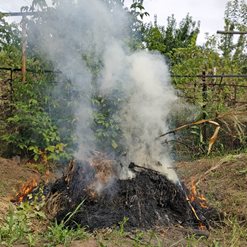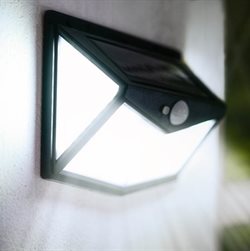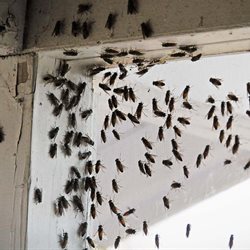Statutory Nuisance
Councils must investigate complaints about issues that could be a ‘Statutory Nuisance’ (a nuisance covered by the Environmental Protection Act 1990).
What is Statutory Nuisance?
There is no set definition of the term “nuisance”, but over many years and hundreds of cases the Courts have considered what constitutes a nuisance, which has helped shape an objective test that can be followed.
When Council officers are considering if something is a Statutory Nuisance or not, they are applying the objective standards set out by legal precedent rather than what someone might consider to be a “nuisance” or “annoyance” in everyday language.
Therefore some things a resident may feel is an annoyance or a nuisance may unfortunately not be seen as one in the eyes of the law. Usually for a nuisance to exist it would be:
- unreasonably and substantially interfere with the use or enjoyment of a home or other premises
- injure health or be likely to injure health
Therefore to help manage our residents expectations and for general information we strongly recommend you consider visiting the link below to the government website that explains nuisances further:
Types of Statutory Nuisance

Emitted from premises, or from a vehicle, machinery or equipment in a street and bonfires

Emitted from industrial, trade or business premises

Coming from premises, or from a vehicle, machinery or equipment in the street

Emitting from badly adjusted security lights or floodlights

Coming from any industrial, trade or business premises

Emitting from an industrial, trade or business premises

Emitted from an industrial, trade or business premises
Issues unlikely to be a Statutory Nuisance
Statutory Nuisances tend to be property based issues. Therefore an issue which disturbed you whilst walking on a public footpath or whilst you were a visitor somewhere, could not be a Statutory Nuisance to you.
Issues unlikely to be covered by Statutory Nuisance law:
- Aircraft noise
- Odour from domestic kitchens
- Road traffic noise
- Neighbours arguing
- Children playing
- A 'one-off' party
In such cases, while we may not be able to take formal action, we may be able to give you advice or suggest your best course of action. It is possible for a private individual to take civil action for damages if their quality of life is badly affected.
Making a complaint
Many people do not realise that they may be causing a nuisance. So before you make a complaint we recommend that you try to talk to the person and politely tell them about the problem.
If you live in a Housing Association or rented property, it is worth discussing your problem with your landlord. Most Conditions of Tenancy include a requirement that tenants do not cause disturbance to neighbours; a Housing Association may be prepared to take action if serious disturbance is being caused.
Should you wish to try and resolve the matter informally then please see the governments webpage regarding resolving neighbour disputes on the following weblink.
If your neighbour continues to cause a disturbance please submit a report using the form on the following link
Report a Statutory Nuisance
How is a Statutory Nuisance complaint investigated?
If we can investigate your complaint in most cases we will contact the person you have complained about, often via letter. In these circumstances this will inform them that a complaint has been made, and ask them to consider ways to prevent their actions from being a nuisance. Details of who has made the complaint are not disclosed.
At the same time we will send out to you a diary sheet for you to fill in if the nuisance continues. The diary should be completed over a timescale that is relevant to the frequency of the issue. For example, an issue that is daily may only require 5-7 days of entries before being returned to us however an issue that is weekly may require 3-4 weeks of entries
Once the diary sheet has been completed and returned to us an officer will assess the diary sheet to determine the extent of the nuisance.
Download a NUISANCE DIARY
These diaries are very important and we may use them as evidence in court. Please be honest and accurate as magistrates do not look kindly on exaggerated or inaccurate evidence, and may throw the case out of court.
Site visits to assess the nuisance
Where necessary, an officer will also make a number of visits to assess whether or not the nuisance represents a Statutory Nuisance. Visits can be made at times when the nuisance is likely to occur including outside office hours. For noise complaints, noise recording equipment may be installed in your house. In most cases it will be necessary for an officer to witness the nuisance before formal action can be taken.
What we can do about the nuisance
If we are satisfied that a Statutory Nuisance exists an Abatement Notice will be served. However, we may take informal action to try to solve the problem first. If the Notice is ignored, prosecution may follow with a fine of up to £5,000 for nuisance arising from domestic properties, or up to £20,000 where commercial or industrial premises are involved.
It may be difficult to solve the problem to everyone's satisfaction. However, we will keep you informed of our progress.
What happens if it is not a Statutory Nuisance?
If, for whatever reason, we cannot take action to stop a nuisance, or if you do not want to involve us, you can complain direct to the Magistrate's Court under section 82 of the Environmental Protection Act 1990. Your diaries will be a valuable source of evidence when taking this action.
For further information, please see Statutory Nuisance - taking your own private action.
We may also be able to put you in touch with a mediation service which can help settle problems between neighbour.
Statutory Nuisance Statistics